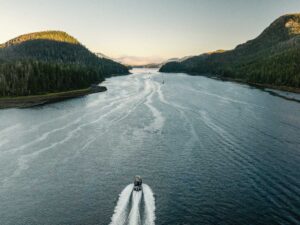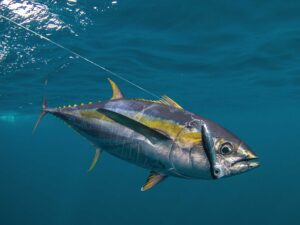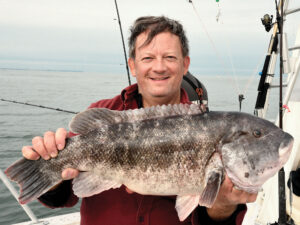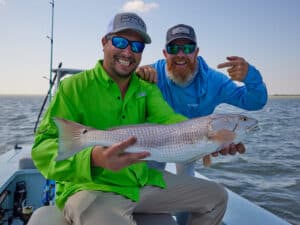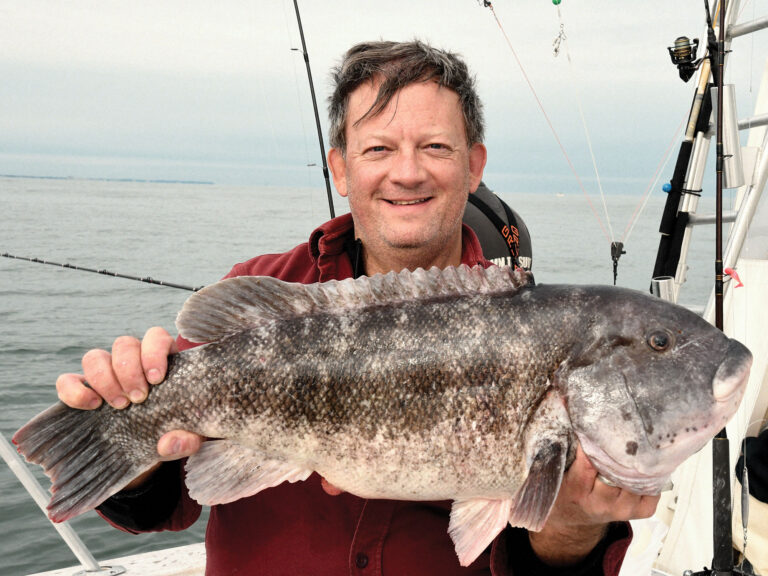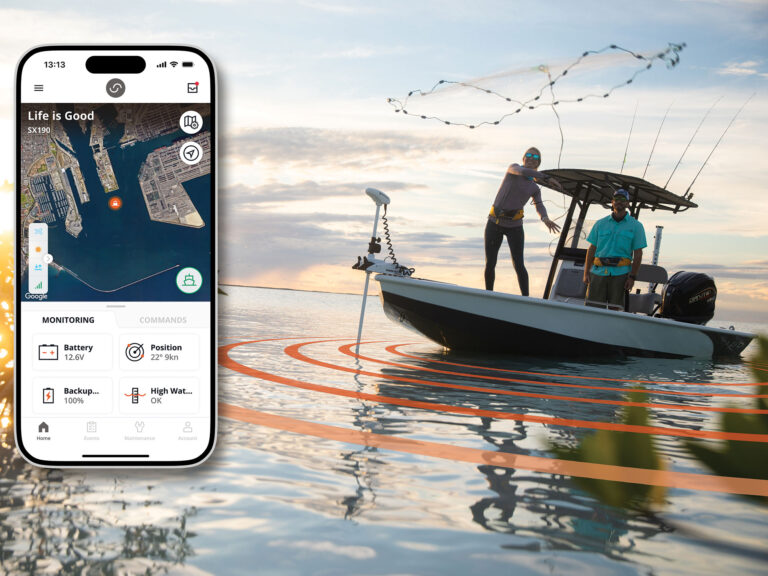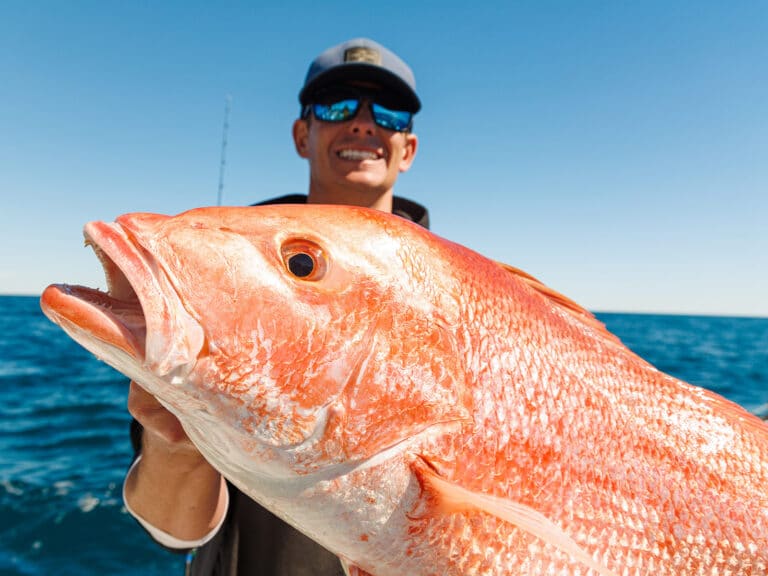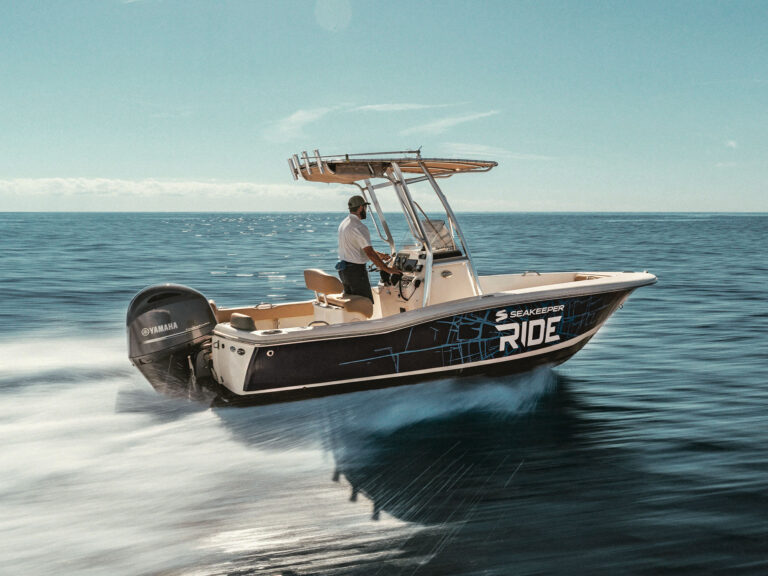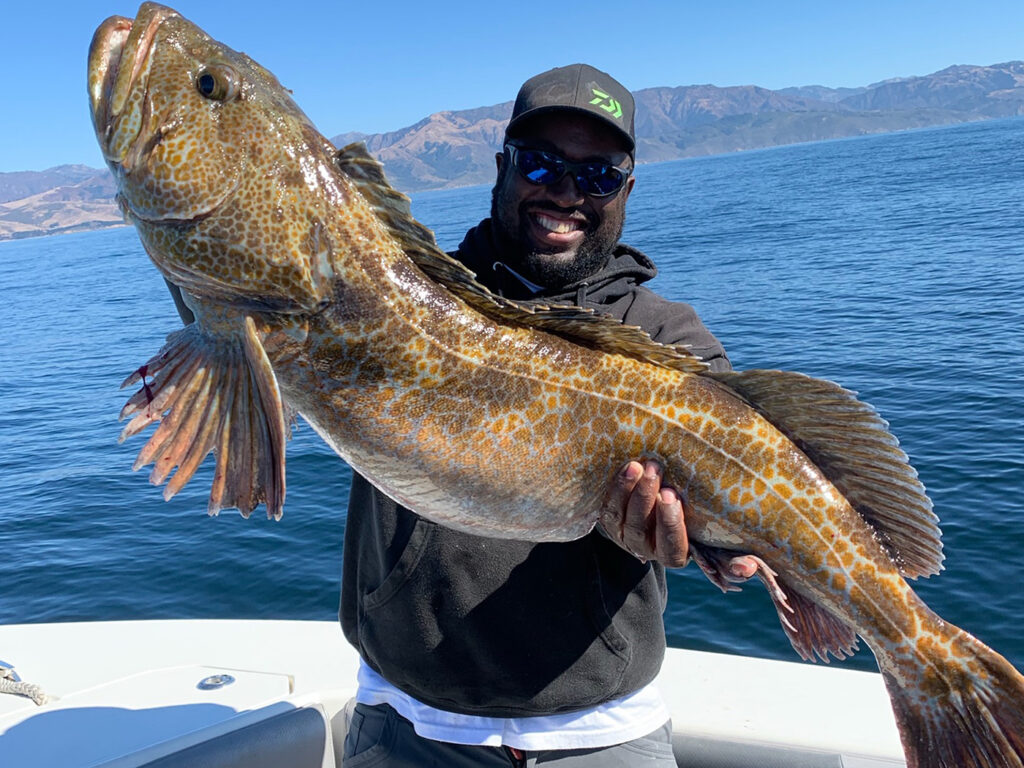
He’s no stranger to long runs, but when pro bass angler Ish Monroe needs a break from the sport he’s pursued for more than 20 years, the Oakdale, California, fisherman settles in for a journey that lasts longer than any tournament he’s ever entered. We’re talking about Southern California offshore fishing — a purely recreational diversion that helps him scratch the itch without all the pressure.
Along with his bass rig — a Skeeter FXR21 with a 250 Yamaha SHO — Monroe also owns a 34-foot Blue Fin center console with twin 450 Yamahas for day tripping. However, after spending countless hours behind the wheel, a more relaxed option proves irresistible to him as a topwater plug to schooling bass.
“I go more often on head boats because I get to go anytime I want and these guys are always dialed in,” Monroe said. “You love fishing, so between tournaments, you want to do something related to fishing, but you don’t want to go bass fishing because it’s your job.
“Head boat fishing is totally different because you don’t have the stress level of competition. It’s eat, sleep, and fish. On the longer trips, you have two days of travel out and back, so you’re basically catching up on sleep.”
Rod-bending, freezer-filling non-stop action’s an easy sell, but for Monroe, the relaxing vibe and a sense of camaraderie pleasantly contrast the highly competitive bass fishing tournament scene. “You’re onboard with a bunch of guys that fish, so you talk about fishing, you talk about gear. I bring my own tackle, but the boats are fully stocked and the food is amazing. It’s like an all-inclusive vacation.”
Offshore Fishing in Southern California
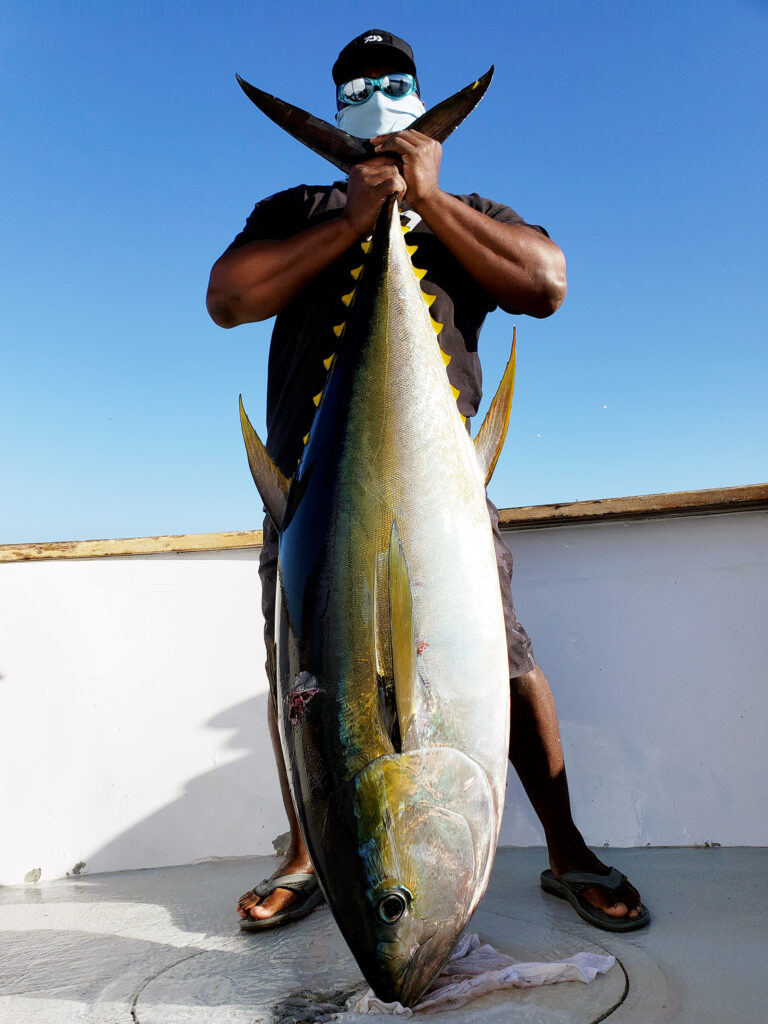
For short excursions, Monroe likes the California Dawn, a 55-foot catamaran out of San Francisco Bay that runs about 30 miles to the Rittenburg Bank, north of the Farallon Islands. There, he’ll target halibut, lingcod, rockfish and striped bass.
For longer trips and a broader assortment of straight-up sea monsters, he’ll pack up his 7- and 8-foot Daiwa Proteus rods strapped with Daiwa Saltiga reels and head south to San Diego. There, he’ll board the 90-foot Vagabond for an 8-day trip that’ll fish all the way down to the waters off Baja California. These long-range trips could see just about anything, but Monroe’s mostly looking for yellowfin and bluefin tuna, yellowtail, grouper and wahoo. Reefs attract the bottom fish, while the pelagic tuna mostly roam open waters in constant search for bait schools. Wahoo live the pelagic lifestyle, but head boats often find them lurking over deep-water rocks.
Complementing the long-range excursions with a few 3-day tuna trips throughout the summer, and a handful of halibut and lingcod outings on his boat, Monroe typically books a post-Thanksgiving trip for yellowfin, wahoo, and yellowtail.
“In terms of sport fishing, I love the tuna and yellowtail because the fight is so exciting,” Monroe said. “For table fare, yellowtail is delicious. You can grill it, fry it, bake it — I make fish tacos. But the halibut and lingcod are amazing, especially beer battered and fried.”
Ask Monroe about his top bass fishing memories and he’ll point to a trio of Bassmaster Elite Series wins and 10 Bassmaster Classic appearances. On the offshore boats, his highlight reel includes a personal best 293-pound yellowfin tuna (same trip his wife caught a yellowfin weighing 275 pounds), a 3-fish halibut limit that weighed 80 pounds, 30-pound lingcod, and a yellowtail rally with most of the fish falling in the 30- to 40-pound range.
The Fresh and Salt Connection
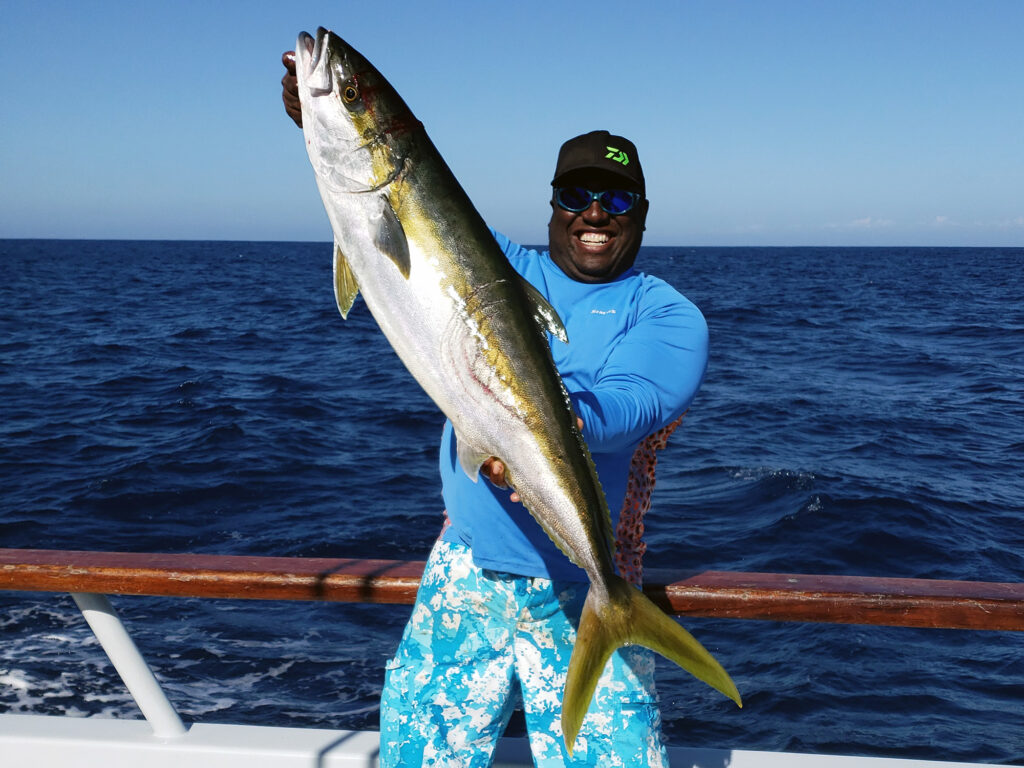
Realistically, the saltwater game doesn’t offer a lot of direct parallels to Monroe’s bass fishing, but the heavier tackle and far more strenuous offshore tactics hold a few thematic connections. One of his personal favorites — fishing anchovies for halibut — reminds him of precision bass tactics like flipping current-washed cover or dropping finesse baits to suspended bass he’s watching on live sonar. “It’s all about the timing, having the right rod, reel, and the right technique,” Monroe said.
Then, there’s the ever-popular reaction bite strategy. Monroe’s renowned in the bass world for his topwater frogging skills and during the prespawn season, he’s an ace with a spinnerbait. Covering water and triggering aggressive bites are vital. Taking this principle to the long-range head boat, Monroe finds a leveled-up thrill with one of the ocean’s fastest, most vicious, and tastiest fish — that tiger striped hellion we call wahoo.
“Catching these fish on a wahoo bomb is the most fun you’ll have on a head boat,” Monroe said. “You throw it out there and reel as fast as you can wind. They’ll stop your reel handle from turning the way they hit it. I caught my personal best, a 70-pounder, this way. If I could do one thing the rest of my life, it would be wahoo fishing.”
Expounding, Monroe notes that his expertise in punching topped-out grass and floating vegetation provides key perspective. As he explains, while it may seem like fish could be just about anywhere on a “fishy” looking spot, there’s always a reason. “It’s interesting to see how predators relate to (offshore) structure,” Monroe said. “Wahoo will sit in the shade of a kelp paddy, like a bass in a mat.”
That Angler Competitive Spirit
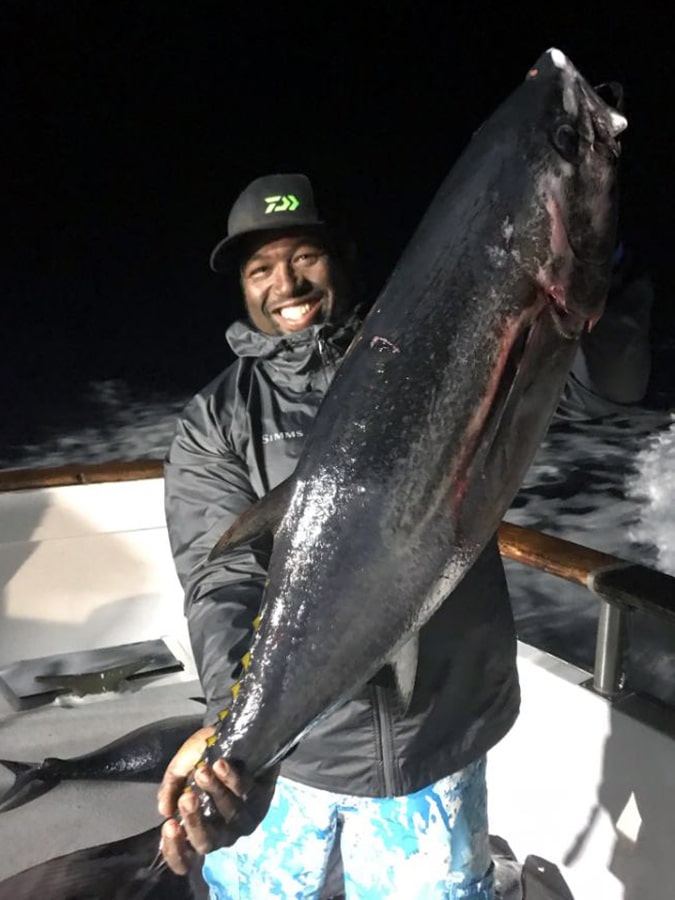
There’s also a lot to be said for Monroe’s internal alarm clock. After years of early rising for predawn launches and daybreak takeoffs. He loves getting a jump on his offshore fishing buddies and even though the long-range trips see him fishing daylight until dark, the thought of that next drag ripper proves purely magnetic. “I try to be the first guy to get up,” Monroe said. “I want to be fishing at the crack of light, even before I have breakfast.”
Throw in some night-time tuna jigging and these long-range trips can keep an angler going nearly round the clock. Considering the relatively short window of amazing opportunity, Monroe doesn’t mind. Besides, there’s plenty of time to sleep on the long ride home.

